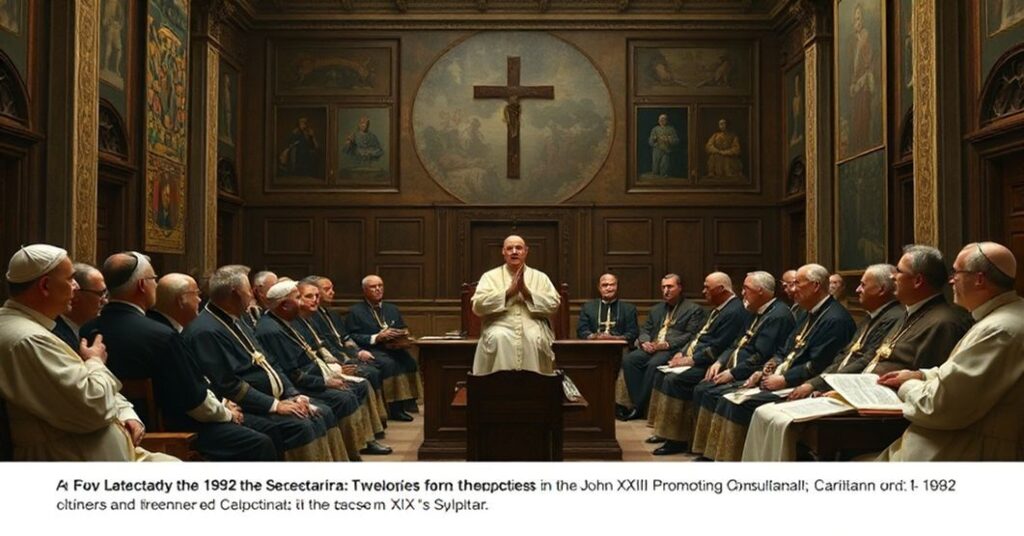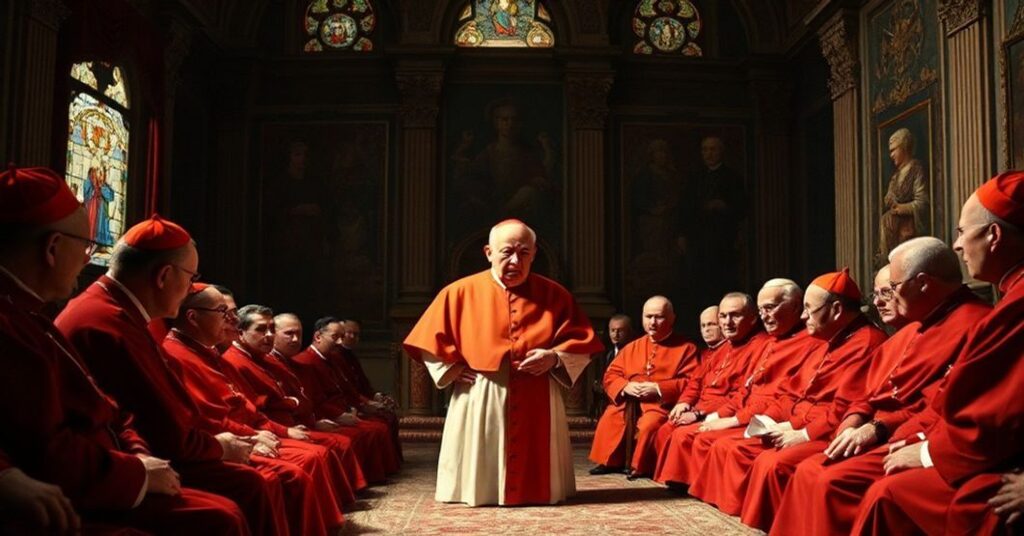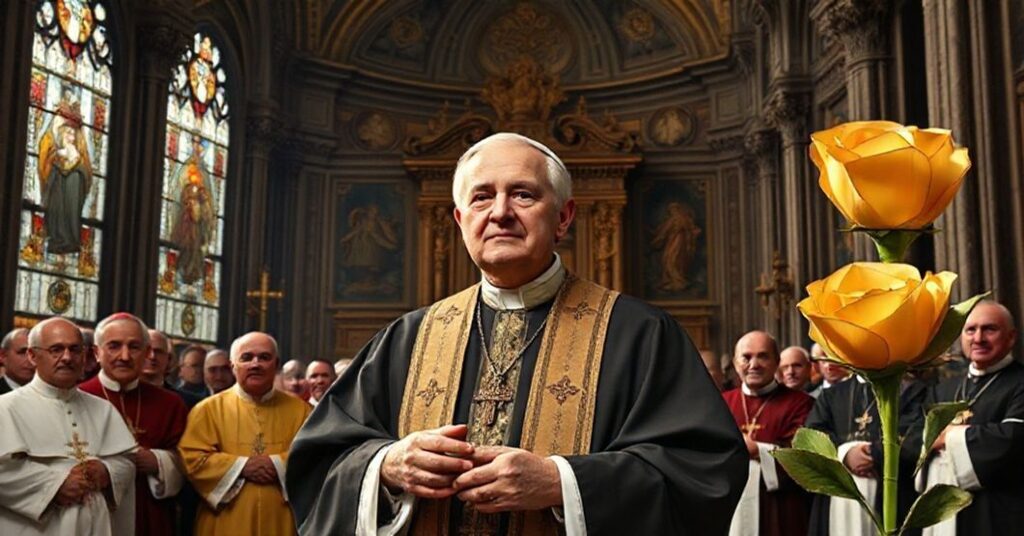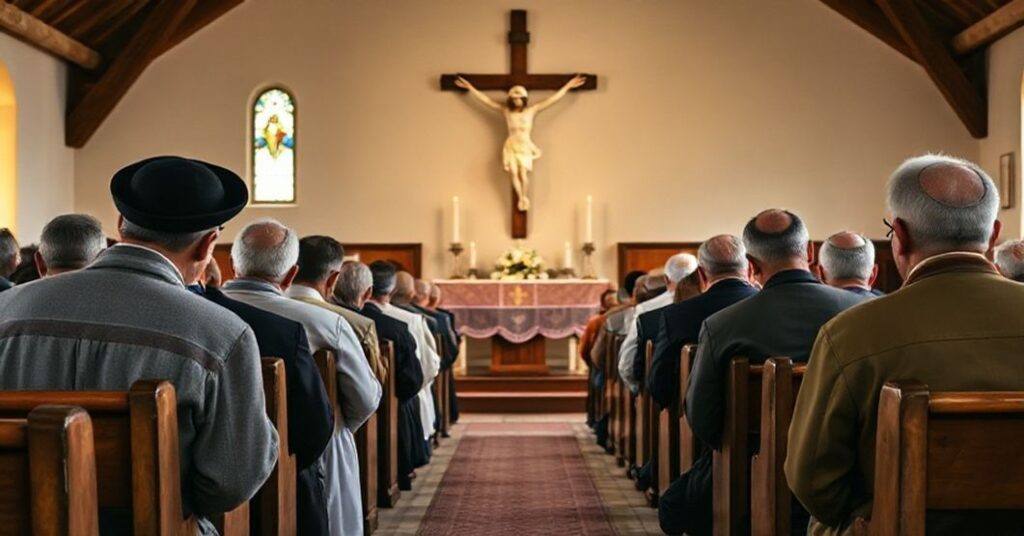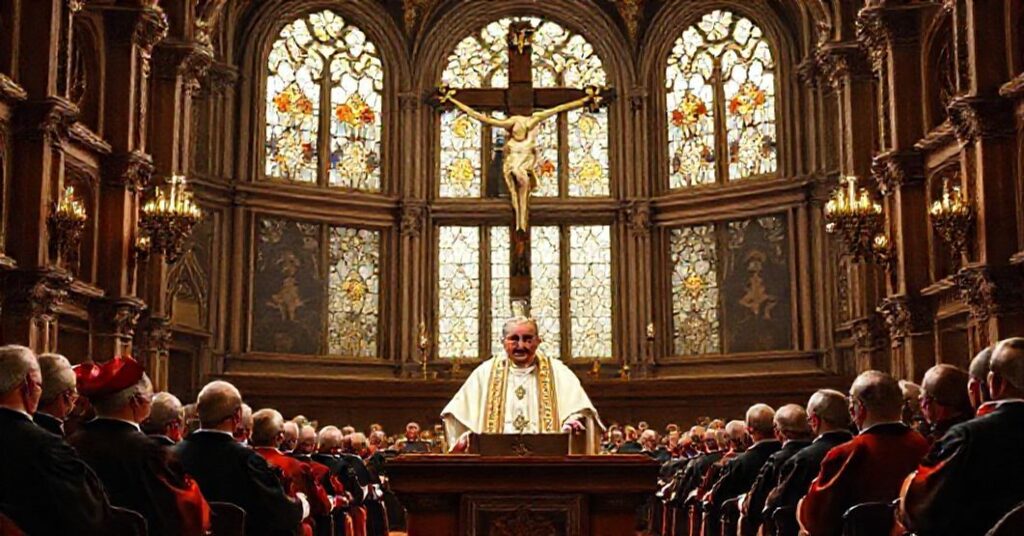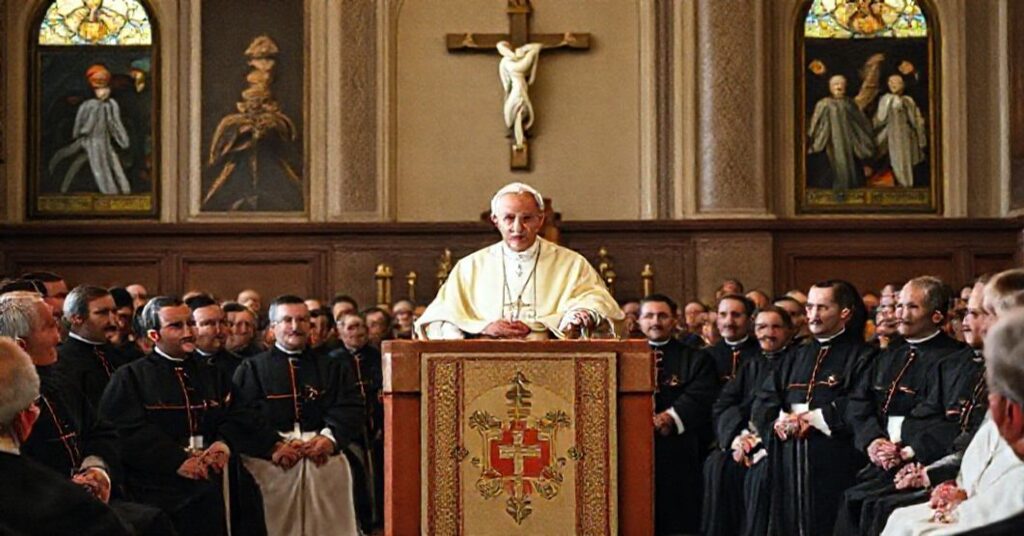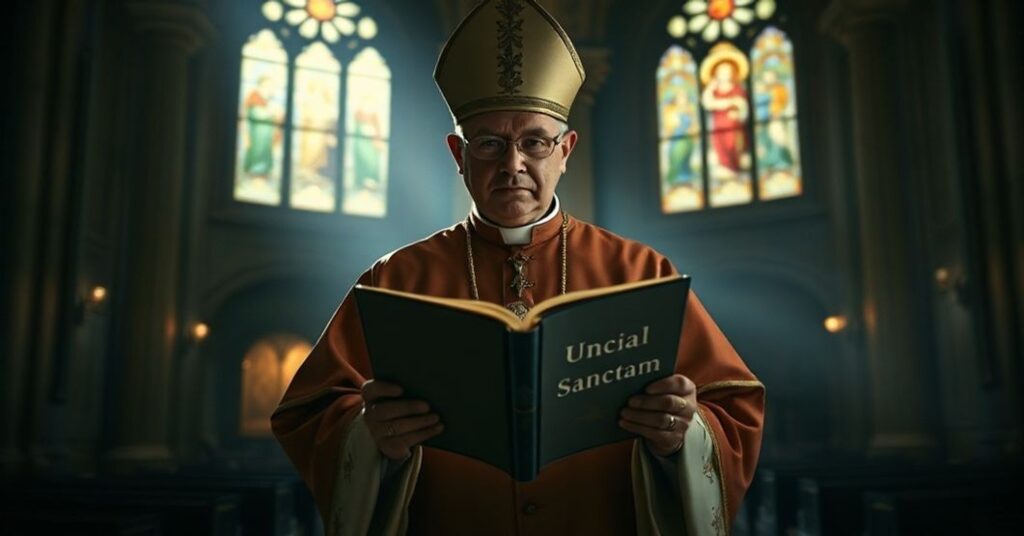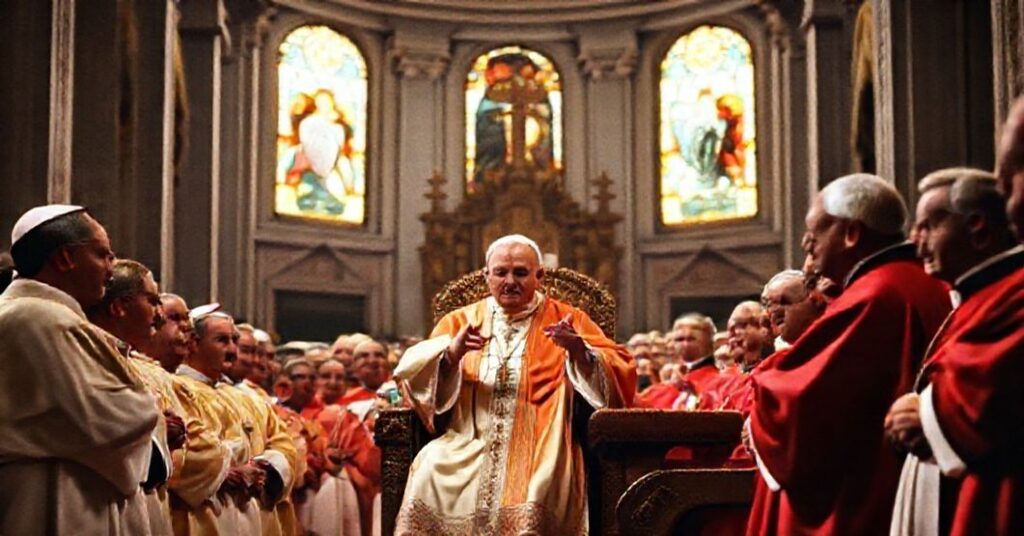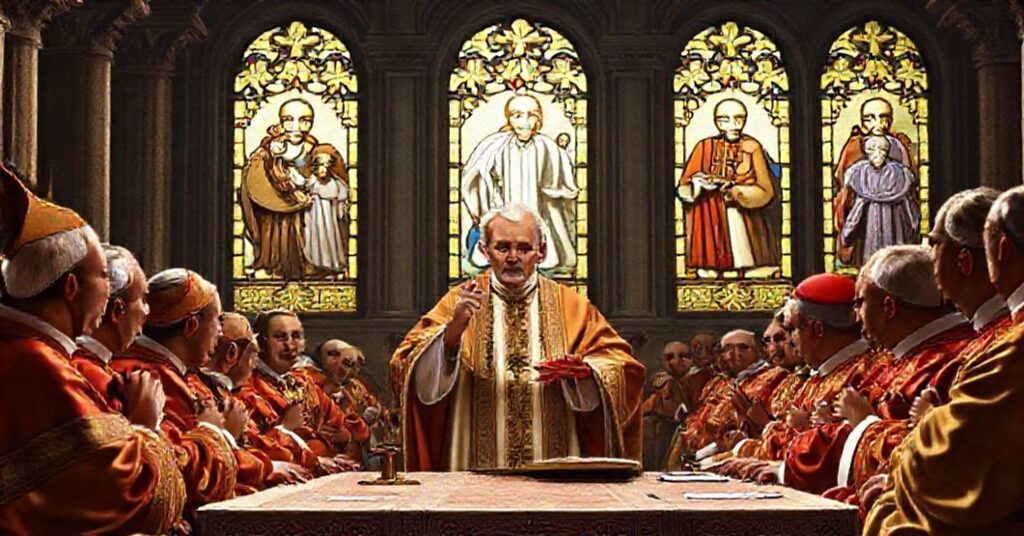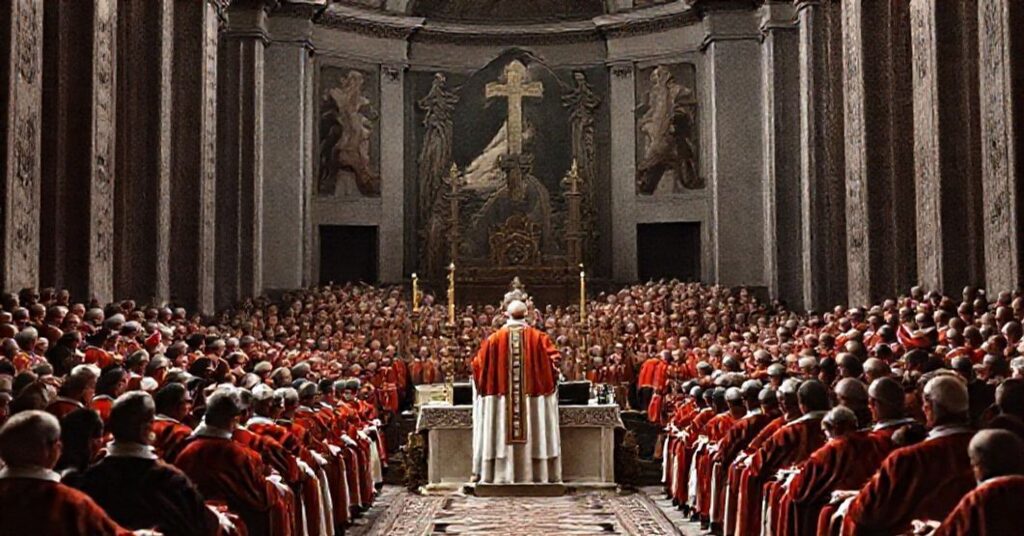Allocutio Ioannis XXIII: Superno Dei Nutu aut Praeparatio Adulterina? (1962.03.08)
Vatican II’s usurper John XXIII, in this allocution of 8 March 1962 to the members and consultors of the Secretariat for Promoting Christian Unity, congratulates them on their work in preparing the Council, praises their “charity” toward non-Catholics, recalls his motu proprio Superno Dei Nutu establishing this Secretariat, invokes “unitarian” hopes of all who bear the Christian name, and extends this horizon even to all “upright and God-fearing” men who, knowingly or not, are said to contribute to the coming of God’s Kingdom; he endorses juridical norms to respond to “pastoral needs,” cites with calculated selectivity a closing discourse of Trent to give traditional varnish to his initiative, and ends with blessings on the Secretariat’s ecumenical labors. In reality, this short text is a programmatic manifesto of a new, naturalistic and irenic religion: a dismantling of the exclusive claims of the Catholic Church and a preparation of the paramasonic “Church of the New Advent” that will enthrone man instead of Christ the King.

